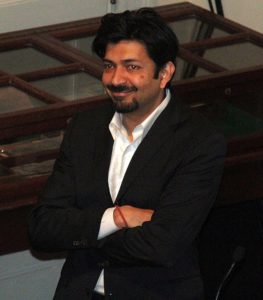63% Indian cancer patients detected at stages III and IV when they are in a lot of pain; 2% have access to morphine

Oncologist and author, Dr Siddhartha Mukherjee has spoken out about how he ran from pillar to post during father’s illness to procure morphine to reduce his pain but could not despite having a valid prescription. He has written to the prime minister to ease availability of the drug that is the “gold standard” for pain relief.
Dr Mukherjee has flagged a very important issue. Between the Narcotic Drugs and Psychotropic Substances Act, (NDPS) 1985 and the famed Indian red-tapism, access to morphine for terminally ill patients in India most of them suffering from cancer is very poor, Cancer doctors estimate just about 2 percent patients with intractable pain have access to the drug. Sample this for tardiness – NDPS was amended in 2013 to ease availability of medical morphine but the amendments were notified only in 2015. Even now awareness is poor. The restrictions on opioid drugs are for fear of drug abuse.
In India, a million people with cancer and an unknown number of people with other incurable and disabling diseases, need opioids for pain relief. Only about 0.4% of the population in need have access to them
A 2007 article in the Journal of Pain and Symptom Management estimated: “In India, a million people with cancer and an unknown number of people with other incurable and disabling diseases, need opioids for pain relief. Only about 0.4% of the population in need have access to them.” In 2008 India used an amount of morphine that was sufficient to adequately treat during that year only about 40,000 patients suffering from moderate to severe pain due to advanced cancer, about 4 percent of those requiring.
The Supreme Court recently upheld the right to die with dignity when it gave legal sanction to living wills – advance directives allowing patients to refuse treatment in case of terminal and fatal illnesses. Where is the dignity in dying if there is not even access to pain medication?
According to the World Health Organisation: “The use of analgesic drugs is the mainstay of cancer pain management. When used correctly, analgesics are effective in a high percentage of patients. A three-step “analgesic ladder” is suggested. It is based on the premise that doctors and healthcare professionals should learn how to use a few drugs well. The three standard analgesics making up this ladder are aspirin, codeine, and morphine.”
The availability of morphine is a massive handicap in cancer care because surveys suggest 63% Indian cancer patients are diagnosed at stage III or IV when the cancer has already spread. Pain in such situations is the dominant feature of the disease. Opioid analgesics comprise most of the pain management advances in recent years. In India hospital pharmacies at some of the bigger centres stock morphine as do sporadic outlets. Only a rare chemist sells it.
The issue was flagged by Human Rights watch in its 2009 report “Unbearable Pain: India’s Obligation to Ensure Palliative Care” in which it argued that government has an obligation to provide end of life care. There was some years ago a move to designate pain as the fifth vital sign after pulse rate, temperature, respiration and blood pressure. Though the American Medical Association in 2016, recommended dropping pain as a vital sign, it is now a widely accepted tenet of patient care that patients have a right to pain alleviation.
The case here is not that drug abuse is not a social evil, but if we cannot give treatment to our people, it is the basic minimum for a government to at least provide pain relief – it is not just about human rights, it is about humanity. That our drug laws are notoriously lax have been proven time and again.
Why should those on the brink on death, pay the price?


